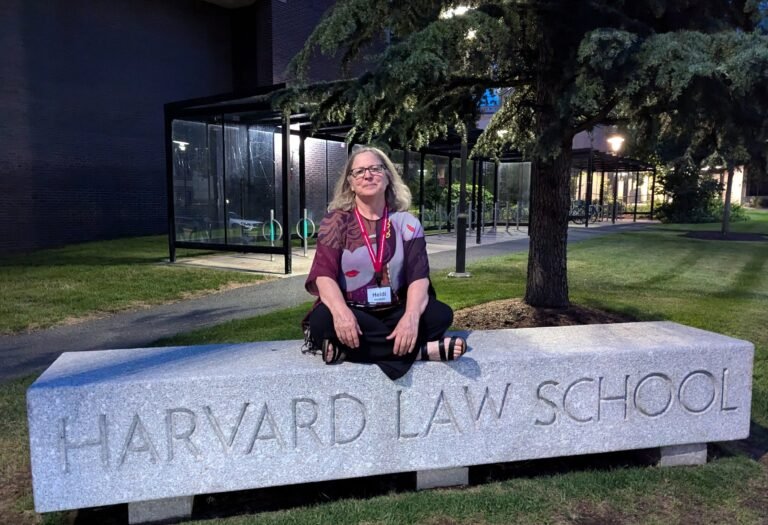How We Helped Oregon’s Psilocybin Industry: Dreamers to Doers
At Vital Reset, we’ve always believed that healing isn’t just personal—it’s also systemic. That belief led us to not only support individual clients, but also to help shape the legal psilocybin industry in Oregon into something sustainable, ethical, and client-centered.
This is the story of how we helped the Oregon psilocybin industry evolve—from the early days of dreaming to the grounded work of building a better system.
The Early Days: Dreaming and Organizing (2022–2023)
When Oregon voters passed Measure 109, it was a historic first. But the work was just beginning. In mid-2022, alongside several other dreamers, we created a Google Group called the OPSCC Public Comment Working Group. The goal was simple but ambitious: bring together stakeholders—facilitators, lawyers, accountants, training centers, and service center owners—to make sense of the new regulatory landscape.
Some of our first shared goals included:
-
Navigating the harsh realities of the 280E federal tax law
-
Helping OHA (Oregon Health Authority) shape practical rules
-
Creating community and collaboration around shared values and practical solutions
We got some wins early on. We created three strategies to survive financially under 280E, and our early feedback helped improve initial rules. But many regulations still didn’t reflect the realities facilitators and clients would face. We were laying track as the train left the station.
Building the Industry from the Ground Up
By 2023, it became clear: those of us willing to open service centers were going to have to lead the way. There were no experts. There was no playbook.
Facilitators were still imagining what their roles would be. Many had never held space for a full legal journey. Training centers were teaching best practices without enough data. The rules were well-intentioned, focused on safety, but often impractical.
At Vital Reset, we opened our doors in a rural part of Oregon. We didn’t just dream—we built. We created a comfortable, safe space where real clients could find real healing. And in the process, we discovered what the rules got right—and where they fell short.
Some of the rules, like requiring clients to retrieve their booster from a locked container, were interpreted so strictly that they created barriers for clients and added stress for facilitators. But we learned. We adapted. And we took notes.
The Learning Curve: From Feedback to Advocacy
By 2024, experience had replaced imagination. We knew what was working, what wasn’t, and what had to change.
That year, we formed a new group: the Psilocybin Service Centers Collaborative. It brought together owners and operators who had been in the trenches for over a year. We started submitting formal, well-formatted rule change proposals—and we were heard, though not always given the changes we saw as necessary.
One of our most important victories came in 2024: the elimination of the backup facilitator requirement. We proved through gathering data that a backup facilitator had never been called in to replace a facilitator who could not continue. This was a big expense for service centers that went from mandatory to voluntary.
We also helped push through updates that opened the door to micro-dosing services—something that clients had long asked for and that service centers were ready to deliver. This was a clear example of what’s possible when the industry works together and advocates with clarity and purpose.
The Work Continues: 2025 and Beyond
This year, we’ve doubled down. A focused group within the Collaborative is working on 6-15 high-impact rule changes that reflect real-world experience from across the state:
-
Clarifying booster dose requirements so clients can receive help from the service center staff
-
Adjusting minimum journey times to reflect actual client needs and experience
-
Removing restrictions on sessions outside standard business hours so service centers can be more sustainable by renting out their beautiful spaces.
-
Simplifying transport plans for micro-doses under 5 mg
Our proposals aren’t theoretical—they’re rooted in thousands of client journeys. We’re asking for a system that prioritizes healing, access, and safety without unnecessary barriers.
We’ve also continued to resist the poorly designed legislative mandate, SB303, which requires extensive data collection with little regard for client privacy or actual usefulness. It reduces the experience for some clients, it costs OHA to administer, and most importantly, the data are almost useless to help drive the industry forward.
Why This Matters
Psilocybin isn’t just a compound—it’s a catalyst. The systems around it must support healing, not hinder it.
This isn’t about resisting oversight. It’s about building a functional, ethical, and adaptable framework for the long haul. One that respects the needs of both clients and facilitators.
We’ve seen what psilocybin can do when people are properly supported. And we’ve also seen how easily rules can create bottlenecks that serve no one.
A Call to All Stakeholders
The Oregon psilocybin industry is still young. But we’ve come a long way—from dreaming to doing, from theory to practice. And there’s more to come.
I was honored to speak at Psychedelic Science 2025 in Denver. I’ll soon speak at Harvard for the second time, sharing lessons from Oregon’s evolving model of legal psilocybin care.
These aren’t just personal milestones—they’re proof that the world is watching Oregon. And it’s up to all of us—facilitators, center owners, regulators, and clients—to keep building something worthy of that attention.
We invite others—especially those in leadership, government, and training institutions—to stay engaged, listen to the real experiences of service centers and clients, and keep improving this system we’re building together.



